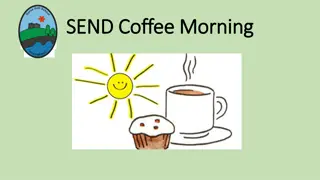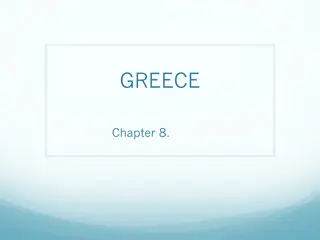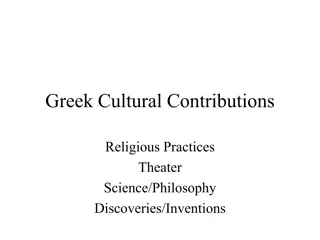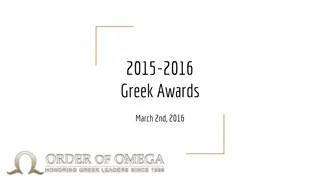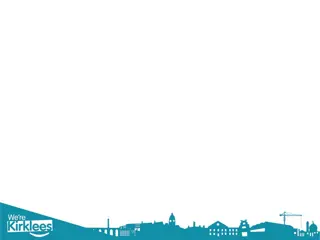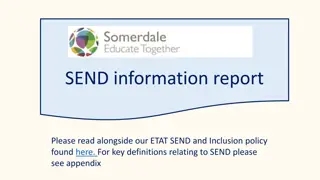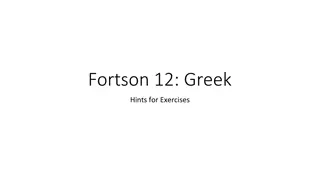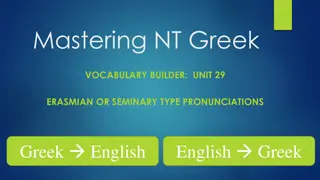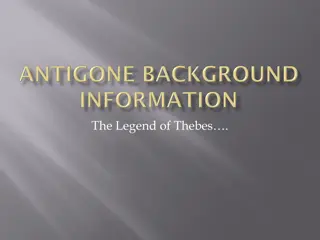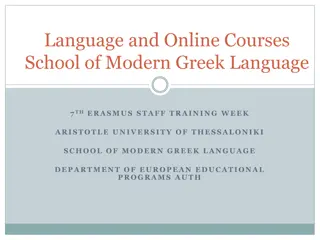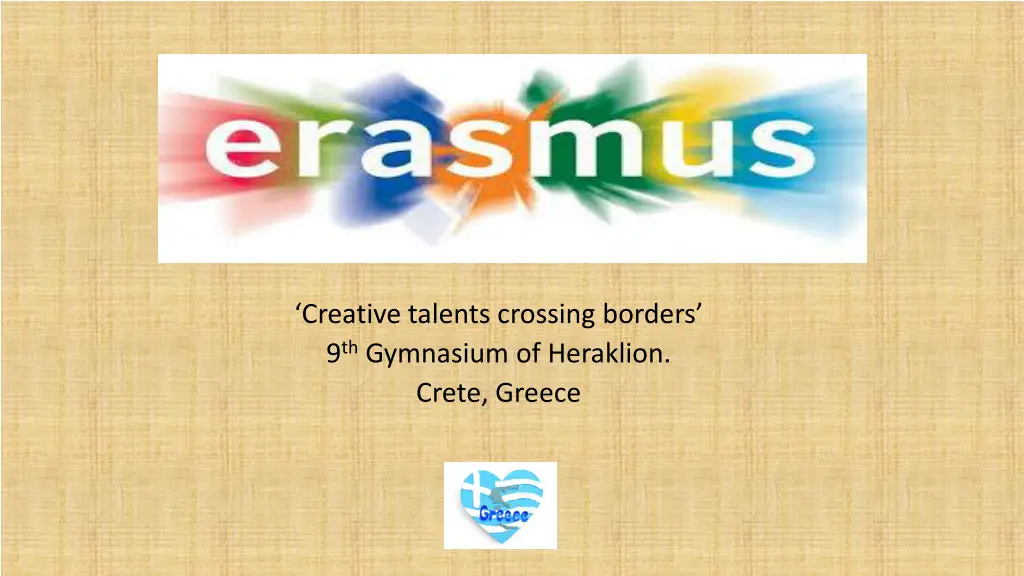
Exploration of Greek Educational System Levels and Pathways
Discover the Greek educational system which encompasses primary, secondary, and higher tertiary education levels. Learn about the paths students can take, from vocational high schools to technological educational institutes, and explore the diverse subjects and grading systems in primary and secondary education in Greece.
Download Presentation

Please find below an Image/Link to download the presentation.
The content on the website is provided AS IS for your information and personal use only. It may not be sold, licensed, or shared on other websites without obtaining consent from the author. If you encounter any issues during the download, it is possible that the publisher has removed the file from their server.
You are allowed to download the files provided on this website for personal or commercial use, subject to the condition that they are used lawfully. All files are the property of their respective owners.
The content on the website is provided AS IS for your information and personal use only. It may not be sold, licensed, or shared on other websites without obtaining consent from the author.
E N D
Presentation Transcript
Creative talents crossing borders 9thGymnasium of Heraklion. Crete, Greece
The Greek educational system The Greek educational system
EXPLORATION OF THE INDIVIDUAL STARTING POINTS FOR YOUNG PEOPLE IN GREECE Subjective Factors: Special Skills, interests, capacities, unemployment rate... GYMNASIUM (PROFESSION CHOICE JOB MARKET) Vocational High School Vocational education and Laboratory training ( ) General High School Following the 1stGrade 1st, 2nd, 3rdgrade grade Cycles VOCATIONAL SECONDARY INSTITUTE POWERED BY UNEMPLOYEMENT OFFICE Orientations Humanities/Sciences/Te chnology grade Orientations C grade Specialization A TWO YEAR COURSE ( INSTRUCTION+ PRACTICE) 4thyear Optional training 9 months of Instruction and Practice School Internal Exams School Internal Exams Panhellenic National Examinations- VOCATIONAL HIGH SCHOOL Certificate of secondary Education Certificate of Secondary Education (Vocational High School) Panhellenic National Examinations TECHNOLOGICAL EDUCATIONAL INSTITUTES SECONDARY VOCATIONAL INSTITUTES HIGHER EDUCATIONAL INSTITUTES TECHNOLOGICAL EDUCATIONAL INSTITUTES POST SECONDARY INSTITUTES HIGHER EDUCATIONAL INSTITUTES
The Greek educational system is divided into 3 levels The Greek educational system is divided into 3 levels Primary education Secondary education Higher Tertiary education Post-graduate education
The Primary education The Primary education Primary school ( compulsory education) - Kindergarden : 1-2years( ages 4-6) - Primary school: 6 years ( ages 6-12)
The primary education/ teaching subjects The primary education/ teaching subjects Grading system: 1stand 2ndyear : no grades 3rdand 4thyear: A to C. 5thand 6thyear: 1-10 Subjects Modern Greek language Mathematics History Environmental studies Music Art English German or French
The Secondary education The Secondary education 3 grades: 12-15 Junior High School ( ages 12-15), compulsory. 3 grades : 15-18 High School (ages 15-18), non compulsory Grading system: 1-20 ( base grade: 10, excellent: 20 ) Students take overall written exams at the end of the year which are considered in the average grade. A students attends the school that is located in his neighborhood unless he has a special interest in art, music or sport or special needs.
General Gymnasiums and Lyceums General Gymnasiums and Lyceums 9 Types 9 Types Music ( after passing exams) Art ( after passing exams) Experimental (through a lottery system) Church School for students with special needs European school( after passing exams on a language.) Second chance schools ( aimed at people aged +18 who have not completed compulsory secondary education) Night school ( holds classes in the evening for people who work during the day. Intercultural Junior High school ( offers courses to students with migrant background)
The basic teaching subjects The basic teaching subjects Modern Greek Language Modern Greek Literature Ancient Greek Language Ancient Greek Literature History Mathematics Physics Chemistry Biology Geography Religion English and German or French Arts Musik Physical education Computer studies Technology Social and Political studies Home economics Project
Vocational Lyceum. EPAL- Vocational education and laboratory training. 3years. 4thoptional training ( instruction and practice) COMMON GENERAL EDUCATION COURSES ORIENTATION GROUP MODULES Agriculture, Food Technology and Nutrition Management and Economics Maritime Professions Technological Applications
Higher Tertiary education Higher Tertiary education Higher Tertial Education, undergraduate studies( non compulsory) after sitting Panhellenic national examinations. University departments ( mainly 4 years, 6 years in medical schools,5 years in school of fine arts) Technical University, Polythechnic ( 5 years, engineering, architecture,applied sciences)) Technological Educational Institutes ( 4 years or 5 years) 2 semesters. 4-6 mandatory lessons. Non compulsory lessons can be taken. Post-graduate education: MSc ( 1-2 years),PhD ( 3-6 years)
Some Characteristics of the Greek educational system Some Characteristics of the Greek educational system All levels of the Greek Educational system are overseen by the Ministry of Education and Religious Affairs. Public schools and Universities do not charge tuition fees or textbooks Private tutorial schools offer alongside the state education foreign language lessons, supplementary lessons for weak students, preparation courses for the Panhellenic National examinations. Education can be provided by private organizations only in the primary and secondary level. The private schools are also supervised by the Ministry. In addition to public Tertiary institutions private colleges provide undergraduate and post graduate studies collaborating with European Union Universities
School days School days Days/teaching hours: Monday Friday. 8.15-14.10 Teaching session: 45 minutes Duration of brakes: 5-10 minutes Vacation: Christmas 2 weeks, Easter 2 weeks. Summer July, August. National holidays:28/10, 25/03,17/11, 1/5










